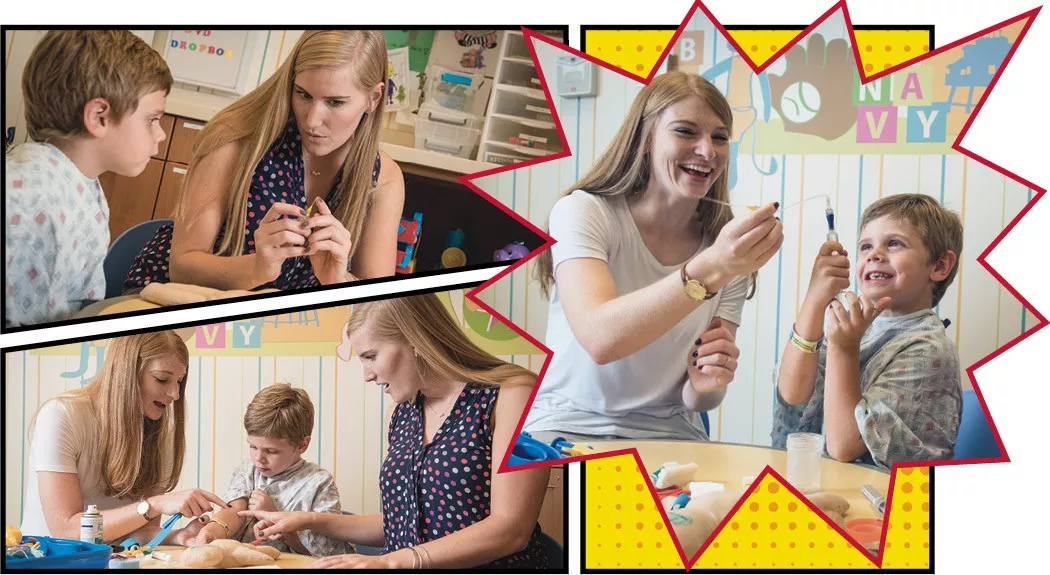
Certified child life specialists Kylie McMenaman (in blue) and Kellie Becker (in white) help kids cope with the stresses of the hospital through play, demonstrations and conversation.
An emergency room visit or hospital stay can be an unfamiliar and overwhelming experience for a child. That’s why AAMC’s certified child life specialists are often among the first to greet children and their families at the hospital. They are fixtures in the pediatric emergency department and the inpatient pediatric unit. With backgrounds in child development and psychology, they use developmentally appropriate tools to help kids — from infants to teens — manage stress and cope with medical procedures and hospitalization. They also advocate for family members and act as a bridge between families and medical staff.
“Children and their parents can feel vulnerable in a hospital setting, so we begin to build a relationship as soon as they walk in the door,” says Kellie Becker, certified child life specialist. “A child can cope better when he or she knows what to expect. Depending on the child’s developmental level, we might show them medical equipment, demonstrate a procedure on a doll, or explain what they will see, hear and smell.” Distraction helps as well, she adds. The specialists carry backpacks full of toys, an iPad, light sticks and bubbles.
Child life specialists are also trained to help families in critical situations. This includes supporting parents whose children are receiving critical care interventions, helping explain and talk about serious illness or death with siblings, and promoting memory-making activities to help a family cope with a loss.
A conversation with an older child or teen can reveal whether he or she prefers to know the details of a procedure beforehand. Child life specialists may discuss what techniques, such as squeezing a stress ball, will help relieve anxiety. “Even children who outwardly appear to be coping well may need attention,” Kellie explains.
Thanks to the generous support of the Building Traditions Society, part of the AAMC Foundation, AAMC’s specialist-to-child ratio allows a level of individualized attention that is not often found at other hospitals, says child life specialist Kylie McMenaman.
“It’s so rewarding to help a patient and family overcome stress, or cope with a medical procedure they were convinced they couldn’t handle,” she adds. “It’s great to see you’ve helped them have a good experience, and to know they’ll carry that to their next healthcare appointment.”
For information on how to support AAMC’s child life program, please call 443-481-4747.



